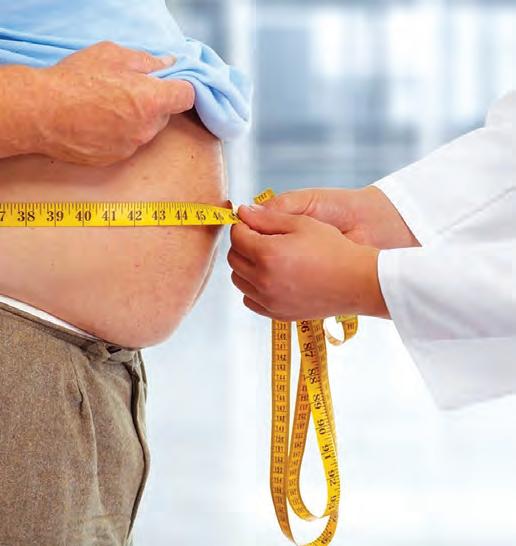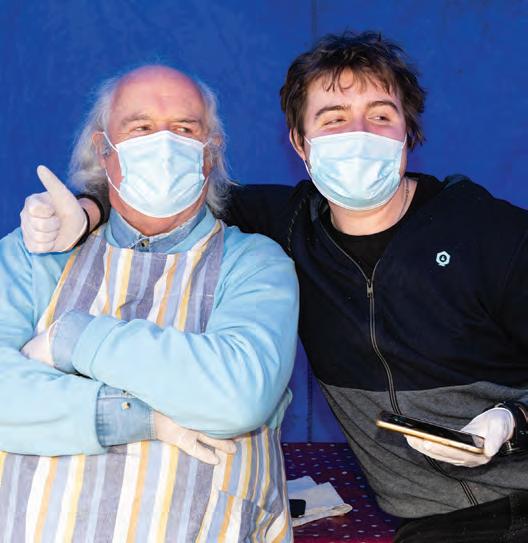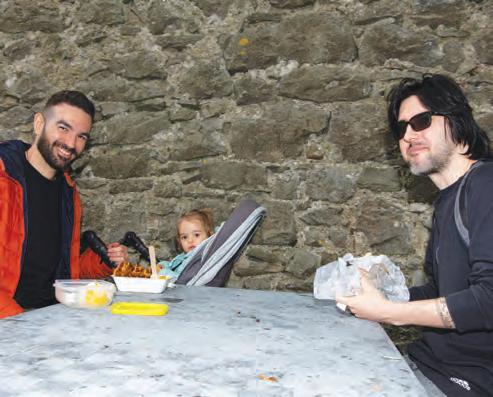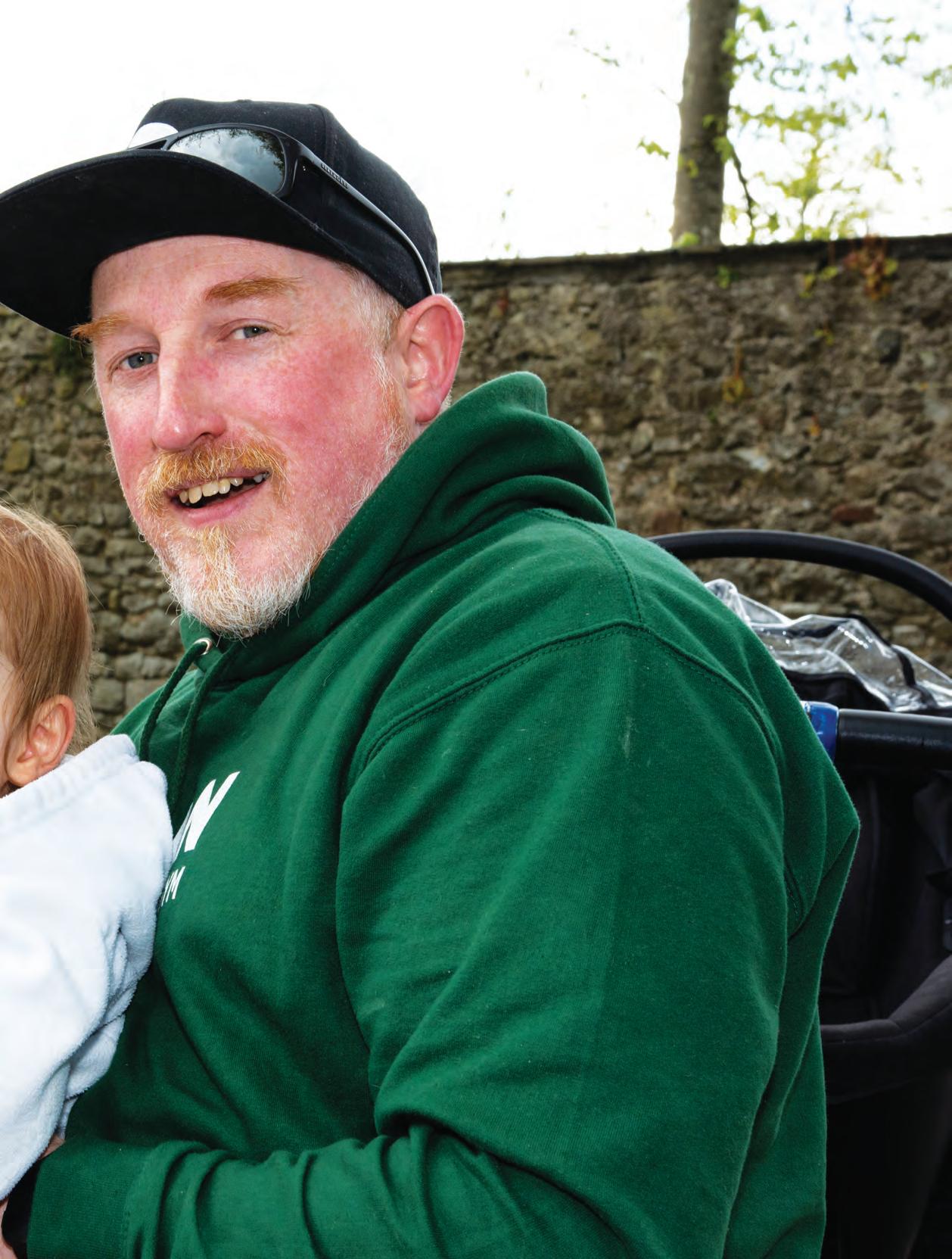
5 minute read
Health & Science
Revealed: the odds of alien life out there and they are pretty good odds
GIVEN the size of our universe, not to mention other universes, it would make you wonder, where are all the aliens? We can’t be the only ones who made it out onto a cosmic rock alive. There might be many reasons we have not encountered aliens yet, from lack of technology to the aliens not wanting to make contact. A new study from the University of Columbia takes a statistical approach to the likelihood of complex extraterrestrial life emerging on other planets.
Advertisement
David Kipping of the university’s Department of Astronomy Columbia used the statistical technique called ‘Bayesian inference’ to arrive at the conclusion that there’s a greater chance than not that aliens exist. The odds he calculated come out 3 to 2 for the aliens.
Kipping based his analysis on the chronology of life’s development within 300 million years of the Earth’s oceans forming and the human evolution on the planet. He wondered how often life would emerge if we were to repeat Earth’s history over and over.
Bayesian statistical inference works by updating the probability of a hypothesis when new evidence or information appears.
“The technique is akin to betting odds,” Kipping explained. “It encourages the repeated testing of new evidence against your position, in essence a positive feedback loop of refining your estimates of likelihood of an event.”
He came up with four possible answers, according to the press release from Columbia: 1. Life is common and often develops. 2. Intelligent life is rare but often develops. 3. Intelligent life is common and rarely develops. 4. Intelligent life is rare and rarely develops.
Using Bayesian math, Kipping pitted the models against each other. According to him, the “key result here is that when one compares the rare-life versus common-life scenarios, the common-life scenario is always at least nine times more likely than the rare one.”
This means that life is nine times more likely to emerge than not. But would this life be intelligent? The answer here is less optimistic. Still, Kipling concluded that under similar circumstances and conditions to Earth, the odds are 3:2 that some planet out there would ssupport complex, intelligent life like ours.
Why are these odds lower? Kipping thinks that as humans appeared rather late in Earth’s habitable history, it’s clear their existence was not a foregone conclusion. “If we played Earth’s history again, the emergence of intelligence is actually somewhat unlikely,” he said.
Obesity: blame it on the fridge, says new study When is the best time OBESITY, which could have fatal consequences if one gets published in the journal Current Biology to take vitamins? Covid-19, would have been a The team, led by University of hard concept for our ancestors to understand. There was little opportunity for it to emerge. Advancements in food preservation and storage, such as processed foods and fridges, opened up an entirely new means of existence. But we have paid for those technologies with what the medical profession calls “diseases of affluence,” such as cardiovascular disease and type 2 diabetes. We were not biologically designed to have food, especially high-calorie food, perpetually available. “The widespread availability of energy-dense, rewarding foods is correlated with the increased incidence of obesity across the globe,” say the authors of a new study funded by The National Institute of General Medical Sciences and University of Virginia Brain Institute and Virginia biology professor Ali Güler, discovered a link between the brain’s biological clock and pleasure centre — a link that is driving obesity. Humans were designed to stuff themselves when food is available. Our ancestors often didn’t know when the next meal would arrive. That’s no longer the case. High- calorie foods, those crammed with sugars and carbohydrates, activate our brain’s pleasure centre; the good feeling is a biological signal for satiation. We feel satisfied then become addicted to and dependent on that feeling. Processed food companies have long exploited this fact. The ability to store food for extended periods of time, a relatively new capability, ensured that our next meal—our next 50 meals—are waiting in the kitchen. IS there a best time of day to take vitamins? The answer depends on the type of vitamin or mineral you’re taking — and also whether you take any prescription medications (be sure to talk with your doctor before starting a vitamin or supplement): • You can take multivitamins and individual water-soluble vitamins like the B group at any time, with or without food, so taking them first thing in the morning is fine and can help you get in the habit of taking them regularly. • Take individual fat-soluble vitamins like A and E with food, such as at dinner, to help your body absorb the vitamin and to avoid the queasiness those vitamins can cause when taken on an empty stomach. • If you take statin drugs, thyroid medication, or antibiotics, ask your doctor or pharmacist if you need to take your supplements a few hours after your medications to avoid any interactions. • If you’re taking both a multivitamin and individual supplements, like calcium, space them apart by a few hours so your body can fully absorb them. Talk to your doctor to see if you really need to take vitamin or mineral supplements.


Ger Brophy displaying his art on the mayors walk


Teaspoon of Ukele, Sean Nolan

Edwina Grace, Ken McGuire and alice

About WITH Danny Lahart Out &

Ralph Sheehan Ger and Marie out for an evening walk on the canal






Peter and Oscar Gibson Skinner Brennan Councillor Andrew McGuiness




Antonio and Amalia Caamanoand Bruno Britto
Steve Kir, Teresa, Fergal and Maeve Byrne Maurice Kirwan, PJ O’Neill and Michael Dwyer










